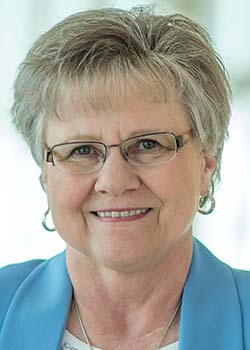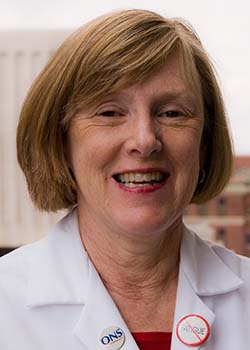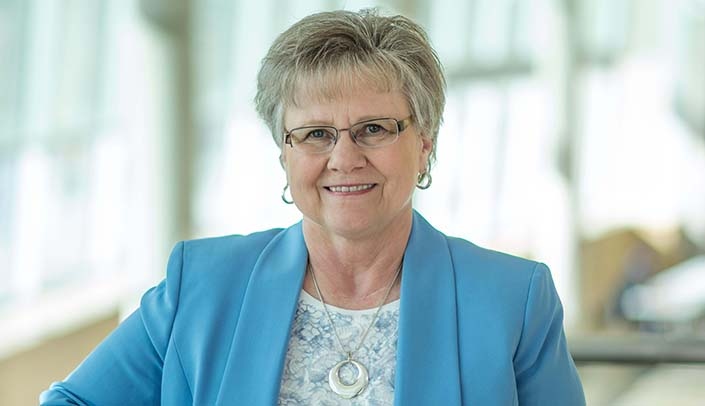The campus community is invited to a special UNMC College of Nursing research symposium featuring the two Dorothy Hodges Olson Chairs in Nursing — Bunny Pozehl, Ph.D., and Ann Berger, Ph.D. — on Wednesday, May 2.
 |  |
Bunny Pozehl, Ph.D. | Ann Berger, Ph.D. |
402-559-4109 or email LaDonna Tworek.
Dr. Pozehl, professor of nursing, was appointed in 2018, and Dr. Berger, professor of nursing and associate dean for research, was appointed in 2007.
Dr. Pozehl will speak on “Scholarship and Mentorship: A Path to the 2nd Dorothy Hodges Olson Endowed Chair in Nursing.
Dr. Berger will speak on “A Decade of Leadership and Role-Modeling to Enhance Research at the UNMC College of Nursing.”
Dr. Pozehl is a nurse scientist specializing in the care and management of patients with heart failure. Her program of research focuses on exercise training interventions and promoting adherence to exercise in heart failure.
Dr. Berger is an advanced practice registered nurse in general oncology. She has served as the principal investigator on four cancer-related research studies focused on cancer-related fatigue, sleep-wake disturbances, related symptoms, functional status, and quality of life and has been serving as team leader of the National Comprehensive Cancer Network Guidelines for Cancer-Related Fatigue since 2008.
The symposium is named in honor of Dorothy Hodges Olson, who graduated with a nursing degree in 1943 from the University of Nebraska School of Nursing and a bachelor’s degree in nursing from the University of Nebraska at Omaha in 1967. She served as president of the UNMC Faculty Women’s Club from 1963 to 1964 and was active on the board of the Visiting Nurse Association. She died in 2010.
The Dorothy Hodges Olson Chair in Nursing, the first fully endowed chair in the UNMC College of Nursing, was established through a contribution from Dorothy and Leland J. Olson, M.D. The endowment supports distinguished nurse scholars whose research and teaching expertise is in community, family and/or women’s health, linking the health of individuals, families and/or populations to the health of the community
